Branded Materials Transition Project
As the university began its next chapter in its institutional identity, each department took stock of the Ryerson-branded items used and distributed in our work and developed plans for how best to re-purpose these materials.
Our institution strives to uphold its commitment to sustainability and good environmental stewardship. Together we have a responsibility to ensure that the transition is not wasteful, recognizing the costs of replacement and the environmental impacts of disposal.
Thoughtfully supporting a sustainable renaming
The Branded Materials Transition Project provides an opportunity to reuse, upcycle or recycle a wide range of Ryerson-branded materials, including merchandise, apparel, stationery, and keepsakes.
When taking stock, it’s important to think about items such as mugs, mouse pads and USB sticks that are currently in use and still within their useful lifespan - these continue to have value and don’t necessarily need to be disposed of. Letterhead and envelopes can continue to be used internally by printing on the reverse side and using address labels, for example.
There are also many items that people may have in their offices, kitchenettes, administrative spaces and personal wardrobes that serve as personal reminders of positive experiences and accomplishments at the university as a student, faculty or staff. There is no need to get rid of these items if they still have value or use to you.
How to manage your Ryerson-branded materials: We’re here to help!
To support TMU departments and community groups with materials that can no longer be appropriately used or distributed, the Branded Materials Transition Project team can provide guidance and assistance to help collect these assets and direct them toward new, useful purposes.
If you, your team or your department have Ryerson-branded materials targeted for disposal, contact the Branded Materials Transition Project to help identify alternate solutions to landfill. Fill out the (google form) Branded Materials Transition Project form (external link) as a starting point to help us get a sense of the scope of the materials that you have. We have and continue to develop local partnerships with organizations that can accommodate a variety of materials from textiles to electronics.
We’ll work with you to figure it out!
Collection update: 11,660 kg of materials were diverted from landfill as of August 30, 2023
What materials were collected and redistributed or recycled
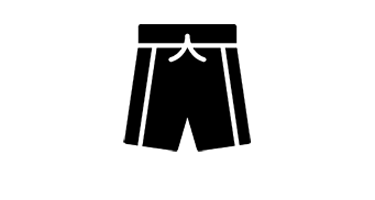
Rams Uniforms and Athletics staff gear: 945 kg
How much stuff is that? That is the equivalent to 1,181 hockey helmets or 3,780 pairs of basketball shorts.
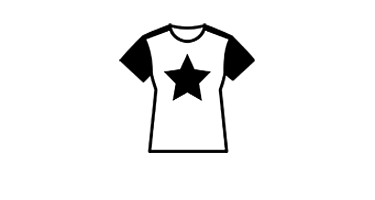
Ryerson-branded apparel: 2,625 kg
How much stuff is that? That is the equivalent of 4,605 hoodies or 18,750 cotton t-shirts.
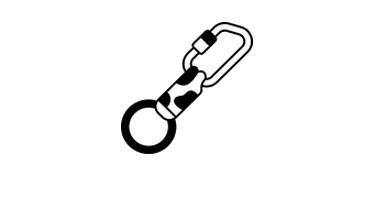
Merchandize and swag (tote bags, pens etc.): 4,815 kg
How much stuff is that? That is the equivalent of 240,750 keychains or 963,000 PopSockets!

Paper products (letterhead, brochures etc.): 3,275 kg
How much stuff is that? That is the equivalent of 721,365 sheets of regular printer paper.
Where did the materials go?
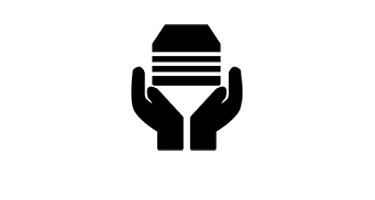
Donated or redistributed: 28%
Items were donated internally for reuse by departments, the TMU Free Store and to various external organizations to find them a new home through direct donation or upcycling programs. A small number of items were sold as remaindered stock items.
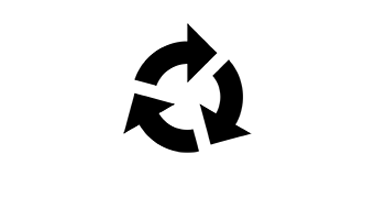
Recycled or repurposed: 49%
Materials were disassembled for the repurposing of their constituent materials and textiles, the branded materials found a second life as raw materials for new things. Materials unfit for repurposing were collected into recyclable streams.
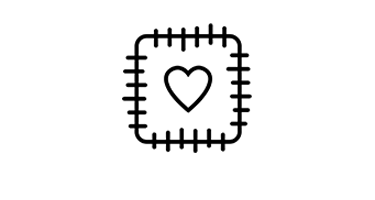
Debranded: 8%
A number of branded items were debranded for their continued, intended use by removing or recovering the existing branding.

Retained for future use or archived: 15%
Some materials were kept at TMU and put in storage for future projects and workshop opportunities.
Transition streams and partners
Materials were sorted and assessed first for reusability, then redistributed for reuse, upcycling or specialized recycling streams to recover material resources through partnerships with community groups and collaboration with sustainability programs.
- School of Architectural Science
- Design Fabrication Zone
- School of Fashion
- Fashion Zone
- School of Performance
- School of Performance and The Theatre
- Facilities Management and Development – Sustainability Office and Facilities Services
- Bishop Macdonell Elementary School
- Homeless Connects Toronto
- Kidnasium
- Lincoln M Alexander Secondary School Clothing Drive
- National Angel Capital Organization
- Norwich Plastics
- Rural Ethiopian Primary School ( facilitated byTMU staff Abraham Kassa)
- Scadding Court - The Sewing Hub
- School of Fashion Alumni
- Souvenir Canada
- Toronto and Region Conservation Authority-Partners in Project Green, Circular Economy Consortium
- Waste Reduction Group
- Yonge Street Mission
- Gina Vaccaro, Project Lead
- Narishdath Maraj, Project Coordinator
- Brooklyn Gemmell, Project Assistant
- Mohamed Abdelwahab
- Sarah Carmichael
- Sarah Edmonds
- Mike Hollands
- Dan Howe
- Alexander Husarewych
- Ian Ingles
- Ashton Jila
- Samantha Read
- Mindy Vuong
- Justin Vanlieshout
Contact us
Contact us at sustainability@torontomu.ca if you have specific questions about branded items and options the program may have to divert them from landfill.
Interested in volunteering? Here’s how you can get involved
The Branded Materials Transition Project is an initiative with a broad and diverse scope and it would benefit greatly from the energy, enthusiasm and dedication of our community. If you would like to participate as a volunteer to support this sustainability initiative, please contact us at sustainability@torontomu.ca.